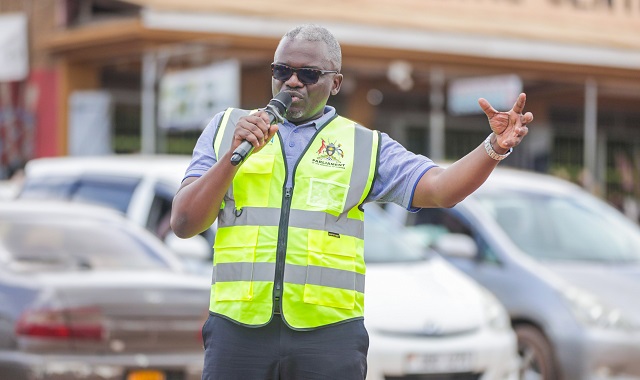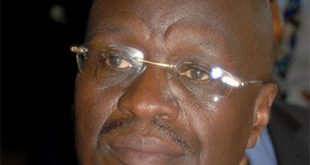
Kampala, Uganda | PATRICIA AKANKWATSA | The government’s enactment of the Anti-Counterfeit Goods Bill signifies an important step towards safeguarding intellectual property, fostering fair competition, and ultimately, protecting Ugandan consumers. However, stakeholders acknowledge that the true efficacy of the legislation rests on stakeholder collaboration.
Fred Muwema, Chairman of the Anti-counterfeit Network says many businesses have to deal with, among others, unfair competition from substandard and counterfeit alternatives.
“ Counterfeiting and the proliferation of cheap substandard products on the market is a major constraint to business growth and competitiveness. They harm harm our economy and pose risks to public health. The Anti-Counterfeit Goods Bill 2023 is a significant stride towards a safer and prosperous Uganda,”
In July 2023, Asuman Basaliwa, the Bugiri Municipality MP, succeeded in securing leave of Parliament to allow him to introduce “The Anti-Counterfeit Bill, 2023.”
The proposed law seeks to ban counterfeit goods that infringe on intellectual property rights, focusing on copyrights and trademarks. It also introduces penalties for trading in counterfeit products and grants authority for confiscation to the Uganda Revenue Authority and inspectors from the Uganda National Bureau of Standards.
In March this year, Basaliriwa and other MPs supporting this bill with the backing of the Anti-Counterfeit Network (ACN) resolved to have public consultations ahead of tabling the legislation in Parliament.
According to Basalirwa, public consultations are crucial in gathering views from various stakeholders to ensure that the legislative process is inclusive and leads to effective legislation to combat counterfeits
Baslairwa revealed that consultations shall last three months beginning April 2024, and will take place at selected locations in the Central, Eastern, Northern, and Western regions of Uganda.
Speaking at the first public consultation in Mukono on April 15, Betty Nambooze, the Mukono Municipality MP, said “we must collaborate to enact legislation that not only punishes counterfeiters but also safeguards our economy and citizens.”
“ The struggle against counterfeits is a human rights issue and a battle for all irrespective of our differences socially, economically, and politically. Counterfeiting is a crime therefore we need to pass the ACGB to fight this crime. I appeal to all the people of Mukono to support it,” she said.
Henry Anguyo, a cyber expert at the Uganda Police says that the enduring challenge lies in the adaptability of counterfeiters.
“These criminal networks constantly innovate their methods, exploiting loopholes in border controls and leveraging the anonymity of online marketplaces, making it increasingly difficult for authorities to stay ahead,” he said.
“Effective disruption necessitates international cooperation and seamless exchange of information to dismantle their intricate supply chains,”
To counterfeit means to imitate something authentic, with the intent to steal, destroy, or replace the original, for use in illegal transactions.
Collaboration is key
While the new bill equips law enforcement with enhanced legal instruments, successful enforcement hinges on a collaborative approach.
“We are also actively working alongside the government to establish a centralized reporting system for suspected counterfeiting activities,” adds Muwema.
“This collaborative spirit is already translating into tangible action. Industry associations are spearheading the development of training programs to equip retailers with the skills necessary to identify counterfeit products,”
The fight against counterfeiting transcends national boundaries. Uganda is actively forging partnerships with neighbouring countries in East Africa.
“We are collaborating with our counterparts in Kenya and Tanzania to establish joint enforcement initiatives and harmonize our legal frameworks,” Muwema said.
“This regional approach aims to disrupt cross-border trafficking and bolster our collective response to this global menace.”
Kenya and Tanzania have laws
Kenya set up the Anti-Counterfeit Agency after amending the Anti-Counterfeit Act of 2008. However, the agency continues to struggle to have a real impact.
In Tanzania, the Merchandise Marks Act was in force in 2008 and amended in 2010. In Uganda, efforts to combat counterfeits reportedly suffered a setback in early 2018 when the government withdrew a 2015 anti-counterfeit goods bill from Parliament, arguing that existing laws were sufficient.
In April 2023, the Anti-Counterfeit Authority of Kenya (ACA) signed a Memorandum of Understanding (MoU) with Uganda’s Anti-Counterfeit Network (CAN) to strengthen strategic collaboration on matters pertaining elimination of Fake goods in East Africa.
According to ACN, it is estimated that the devastating effects of counterfeits and substandard products on public health and the economy are too severe to ignore, noting that more than a third of our national budget 2023/24 of 52.7 trillion is wasted due to counterfeits.
 The Independent Uganda: You get the Truth we Pay the Price
The Independent Uganda: You get the Truth we Pay the Price



